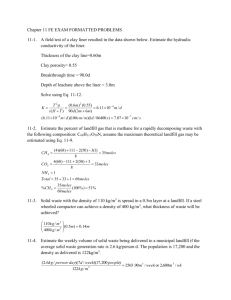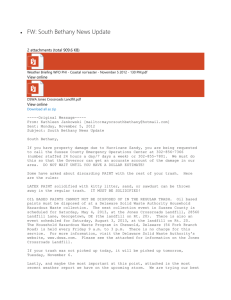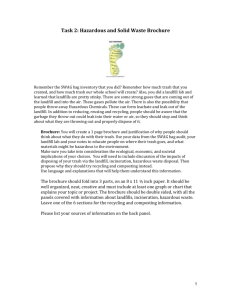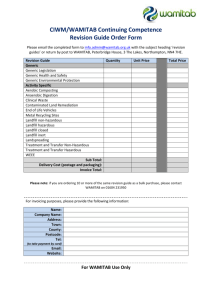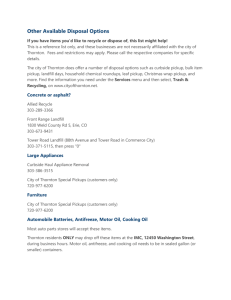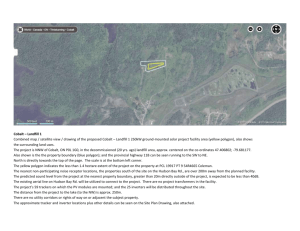memorandum
advertisement
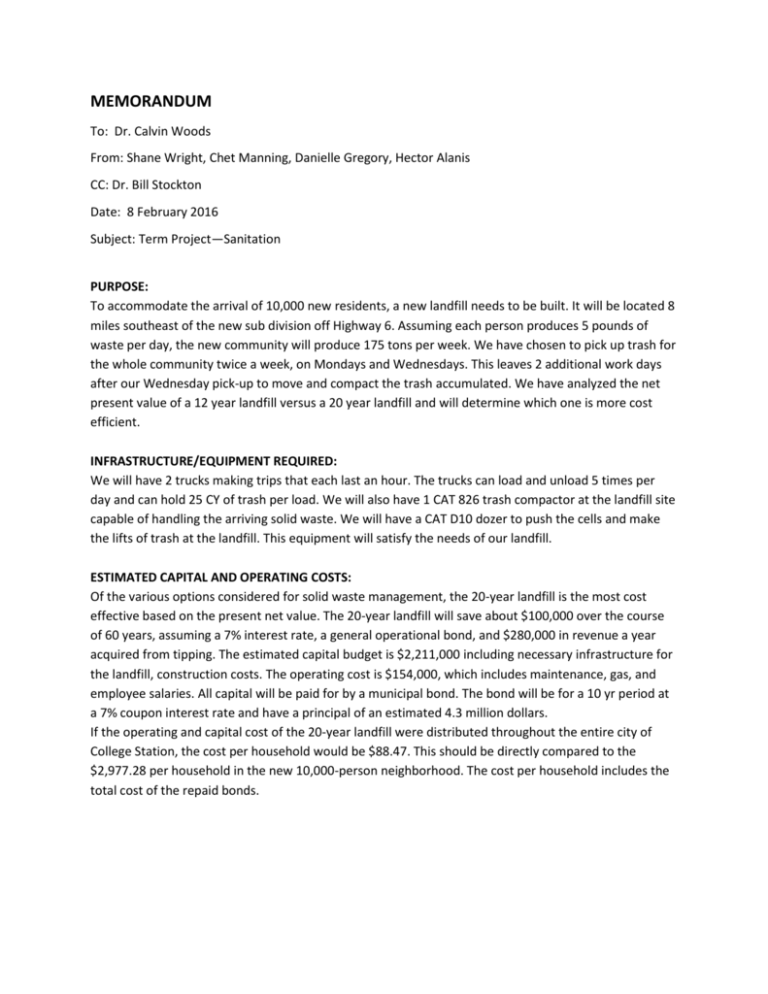
MEMORANDUM To: Dr. Calvin Woods From: Shane Wright, Chet Manning, Danielle Gregory, Hector Alanis CC: Dr. Bill Stockton Date: 8 February 2016 Subject: Term Project—Sanitation PURPOSE: To accommodate the arrival of 10,000 new residents, a new landfill needs to be built. It will be located 8 miles southeast of the new sub division off Highway 6. Assuming each person produces 5 pounds of waste per day, the new community will produce 175 tons per week. We have chosen to pick up trash for the whole community twice a week, on Mondays and Wednesdays. This leaves 2 additional work days after our Wednesday pick-up to move and compact the trash accumulated. We have analyzed the net present value of a 12 year landfill versus a 20 year landfill and will determine which one is more cost efficient. INFRASTRUCTURE/EQUIPMENT REQUIRED: We will have 2 trucks making trips that each last an hour. The trucks can load and unload 5 times per day and can hold 25 CY of trash per load. We will also have 1 CAT 826 trash compactor at the landfill site capable of handling the arriving solid waste. We will have a CAT D10 dozer to push the cells and make the lifts of trash at the landfill. This equipment will satisfy the needs of our landfill. ESTIMATED CAPITAL AND OPERATING COSTS: Of the various options considered for solid waste management, the 20-year landfill is the most cost effective based on the present net value. The 20-year landfill will save about $100,000 over the course of 60 years, assuming a 7% interest rate, a general operational bond, and $280,000 in revenue a year acquired from tipping. The estimated capital budget is $2,211,000 including necessary infrastructure for the landfill, construction costs. The operating cost is $154,000, which includes maintenance, gas, and employee salaries. All capital will be paid for by a municipal bond. The bond will be for a 10 yr period at a 7% coupon interest rate and have a principal of an estimated 4.3 million dollars. If the operating and capital cost of the 20-year landfill were distributed throughout the entire city of College Station, the cost per household would be $88.47. This should be directly compared to the $2,977.28 per household in the new 10,000-person neighborhood. The cost per household includes the total cost of the repaid bonds.

